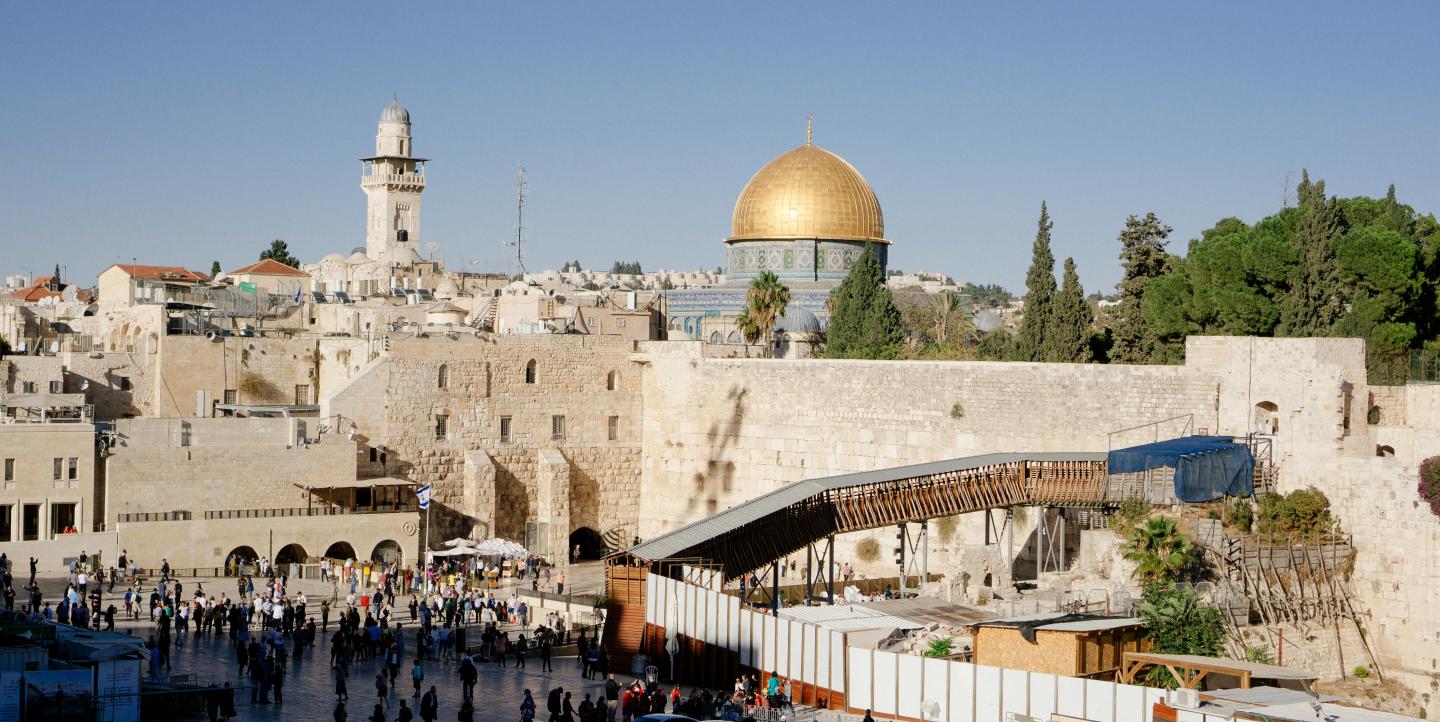In the aftermath of the October 7 Hamas attacks, mainstream Israeli media has promoted a largely nationalist discourse, drawing clear distinctions between “them” – the enemy – and “us” – Israelis.
The pressure exerted on newsrooms – among the public, from the military, and by the government – to cover the war in this way was put on alarming display when the government shut down the Qatar-based TV news channel, Al Jazeera, in early May.
Press freedom groups condemned the action. “With this decision, Israel joins a dubious club of authoritarian governments to ban the station. And the government may not be done,” reads a statement from The Foreign Press Association in Israel, which has worked to assist its members to cover conflicts in the Middle East since 1957.
“The prime minister has the authority to target other foreign media that he deems to be ‘acting against the state.’”
The banning
In shutting down Al Jazeera, one of the few newsrooms to operate in Gaza since the start of the war, Israel has claimed that the outlet “harms Israeli security,” and has a “close connection” with Hamas, the militant group it is targeting in Gaza.
Israeli Prime Minister Benjamin Netanyahu welcomed the decision, calling Al Jazeera a “mouthpiece for Hamas,” and the Israeli army has accused Al Jazeera journalists of being Hamas members themselves, which Al Jazeera has rejected.
The groundwork for the ban was laid on April 1, when the Israeli Parliament passed the so-called “Al Jazeera” law, which allows closure of all foreign media that could represent a security threat to the country. A month later, on May 5, the Israeli war cabinet voted unanimously to close the Qatari channel in the country, for a period of 45 days.
Israeli forces immediately shut down Al Jazeera’s offices in East Jerusalem and confiscated its equipment. In early June, a Tel Aviv court upheld the ban for another 45 days.
Al Jazeera’s closure in Israel could also affect its operations in the West Bank and Gaza, where the outlet is still present. Access to both Palestinian regions is controlled largely by Israel, a reality that could affect the freedom of movement of Al Jazeera journalists.
Already last month, following its ban in Israel, Israeli Defense Minister Yoav Gallant instructed the military to block Al Jazeera in the West Bank.'
Censorship and press freedom concerns
Press freedom organizations have criticized Israel for its persecution of Palestinian journalists, including the over 100 that have been killed during its offensive in Gaza. A lack of independence among media outlets in Israel that have aligned themselves with the government, and military censorship are additional major obstacles to the flow of information in the country, especially during the war.
“Censorship can have an impact on the publication of information related to armed actions in Gaza,” said Oren Persico, a journalist with The Seventh Eye, an Israeli investigative magazine. “Since October 7, there has been self-censorship in almost all Israeli media on the humanitarian situation in Gaza. Perhaps because of military censorship, but mainly because the Israeli public is not interested. The overwhelming majority of Israelis do not know what is going on in Gaza.”
Yanki Farber, a journalist with several Orthodox media outlets including Yated Neeman, said his work to reveal the humanitarian crisis in Gaza has become much more difficult since October 7.
“Publications about the humanitarian situation in Gaza are immediately followed by very strong reactions from certain readers, who consider that the inhabitants of Gaza deserve this situation,” he said. “This puts a lot of pressure on my work, so I avoid publishing certain things to avoid the torrents of reactions.”
The law used to close Al Jazeera could be used to shut down other media critical of the government, as well, fears Persico. “The next step could be to ban other foreign media, and even, in time, Israeli-Palestinian media and left-wing Zionist media,” he said. “The climate is poisonous, with politicians in power regularly claiming that media critical of Benjamin Netanyahu – TV channels 11, 12 and 13 – are like Al Jazeera.”
Hanin Majadli, a weekly columnist and the editor of Haaretz Arabic, expressed concerns that the left-leaning Israeli media outlet Haaretz is under threat. “With the closure of al Jazeera, the government is putting in place the tools to enable attacks on other local media that criticize the policy in Gaza,” she said. “I think Haaretz is concerned about these moves.”
Majadli fears the censorship may be closing in on her, too.
“I ask myself every day: when will the day come when I will no longer be able to write what I write?” she added. “I am afraid that day may not be so far off.”
Photo by Haley Black via Pexels.


